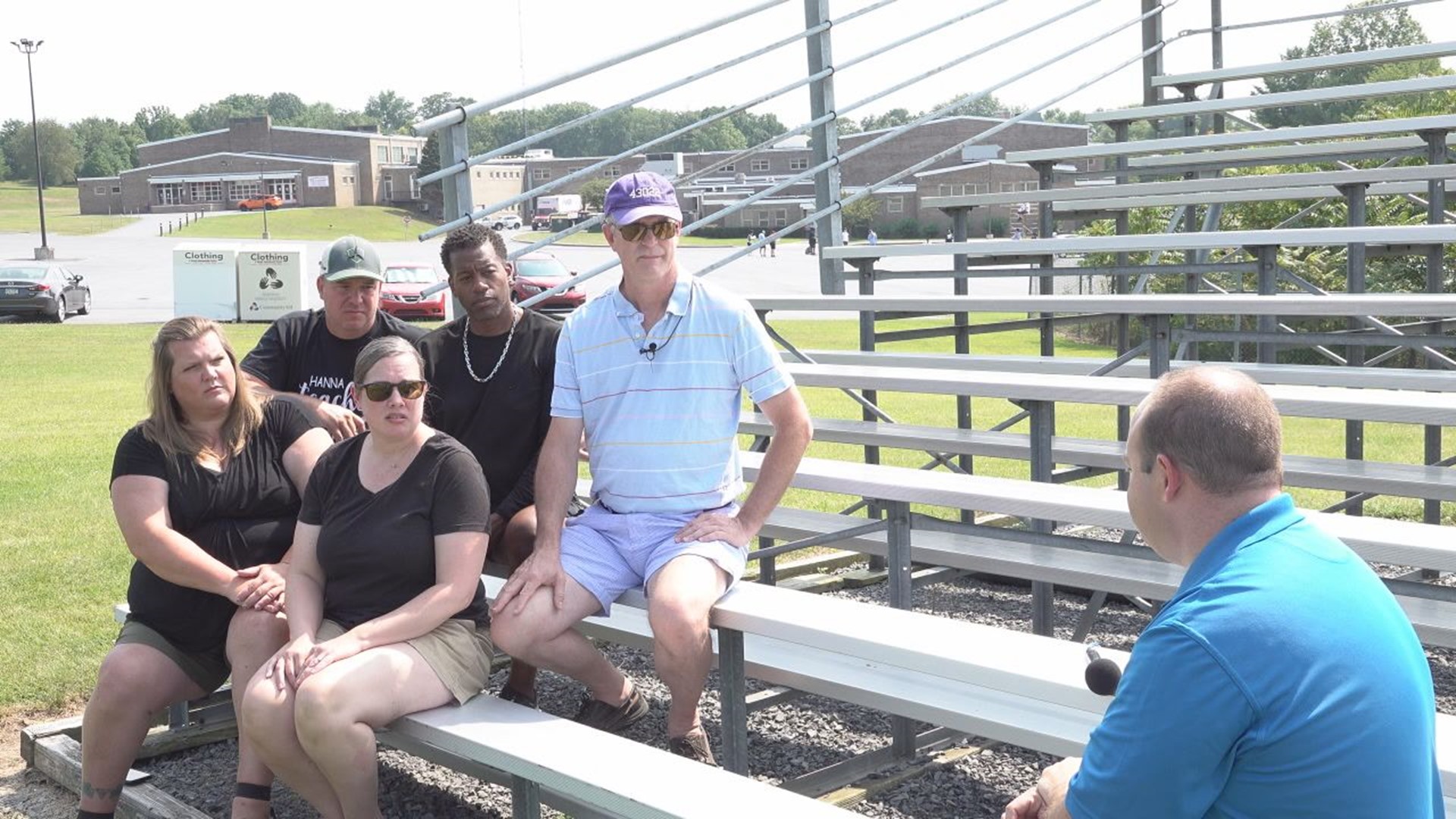HARRISBURG, Pa. — From the Zoom room, to the classroom, teachers' resiliency has been on display throughout the COVID-19 pandemic.
For the last year, FOX43 has followed around a group of teachers in the Susquehanna Township School District in Dauphin County, telling their stories on the frontlines of educating young minds.
Meagan Hamsher (biology, physiology), Kerry Snell (Spanish), Joe Headen (social studies), Rob McDonald (biology), and Dr. Steve Sexsmith (chemistry) expressed their concerns going into another school year overshadowed by the coronavirus.
"The summer was good from an energy perspective but I'm extremely concerned with what's going to happen in the fall," Sexsmith said. "It's kind of scary."
Susquehanna Township is one of a handful of South Central Pennsylvania school districts to make masks mandatory this fall among students and staff. Others include Harrisburg, Derry Township, Shippensburg, Carlisle, Lancaster, and York.
Vaccines for kids 12-and-older are not mandatory, though they are recommended, per the Centers for Disease Control and Prevention.
However, as teachers get closer to the start of school, some feel their mental health and anxieties starting to increase once again.
"I felt like I was in a really good place energy wise and mentally wise and then I got that email that said we had to do masks and it was instantaneous, like I went back to a different place immediately mentally it just crashed my hopes for the year," said Hamsher.
She equated it to almost having a post-traumatic stress-related panic attack.
Sexsmith spoke about the difficulties in teaching students with masks on.
"We've spent our whole careers learning how to read faces," he said. "When you do it for a while it's really easy to read that big huge question mark on someone's face. But it's very hard to read it the question mark when you can't see it."
However, all teachers were adamant that teaching to students in-person with masks on was preferred over last year, when many classes were done entirely virtually with children at home.
Joe Headen referred to it as the "lesser of two evils."
"At least you have that level of contact and engagement," he said.
When classes started a year ago, COVID-19 cases were falling, but were expected to rise as students started congregating once again. This fall, COVID-19 cases are rising, courtesy the highly contagious delta variant.
Vaccines are available to all staff and high school aged children, though are not mandatory, and are not yet available to anyone under the age of 12.
Even as more and more people get the COVID-19 vaccine, teachers do not feel safe.
"There is no safe. There is the perception that I am less at risk," McDonald said. "Nobody guaranteed us zero cases, so let's stop trying to guarantee that. People are going to get sick things are going to happen. And we're going to have to adapt, adjust, and move forward."
Because of that, teachers feel there was more direct guidance from the Pennsylvania Department of Education. Currently, the PDE has left all local decisions in the hands of the school districts, saying that they should follow CDC guidelines which calls for mandatory masking of students and staff.
When asked what guidance they would like to see from the Department of Education, Hamsher responded by saying, "Some guidance? Something. … For me it's typical of them. No matter what it is. COVID, state testing, you name it, they do the bare minimum at the last minute."
Kerry Snell echoed Hamsher's comments, adding, "There will be guidance, and I think it'll come the day before school starts."
Dr. Sherri Smith, deputy secretary for the Pennsylvania Department of Education, responded by saying a "one size fits all" policy when community dynamics vary wouldn't work in the commonwealth.
"There is a saying here, that if you know one school district in Pennsylvania, you know one school district in Pennsylvania," Smith said. "If you do a blanket statement across the state, you're treating everyone the same when the conditions could be very different."
The Susquehanna Township teachers lamented having different policies than neighboring districts, including ones in which they live and travel to-and-from daily, creates animosity between districts. When asked if the PDE would consider regionally-based guidelines, Dr. Smith said school districts are more than welcome to work with one another to do so, but the department would not formally get involved.
"At the end of the day, we want to teach kids," Headen said. "Whatever goes on, we're just here to help kids become better people."

